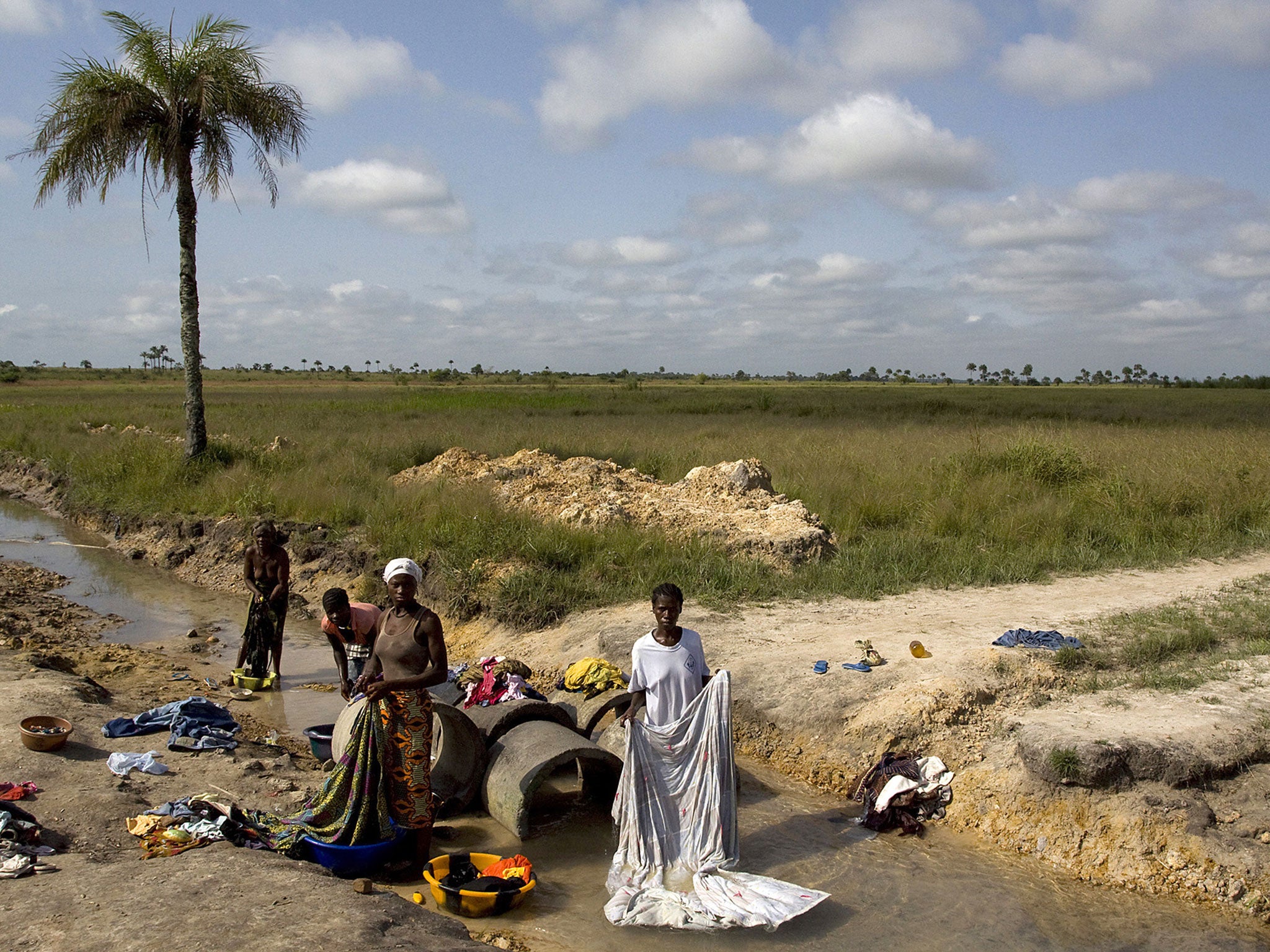Biofuel project funded by UK ‘leaves Africans without food’
DfID accused of assisting land grab in Sierra Leone by providing aid for European energy business

Your support helps us to tell the story
From reproductive rights to climate change to Big Tech, The Independent is on the ground when the story is developing. Whether it's investigating the financials of Elon Musk's pro-Trump PAC or producing our latest documentary, 'The A Word', which shines a light on the American women fighting for reproductive rights, we know how important it is to parse out the facts from the messaging.
At such a critical moment in US history, we need reporters on the ground. Your donation allows us to keep sending journalists to speak to both sides of the story.
The Independent is trusted by Americans across the entire political spectrum. And unlike many other quality news outlets, we choose not to lock Americans out of our reporting and analysis with paywalls. We believe quality journalism should be available to everyone, paid for by those who can afford it.
Your support makes all the difference.Thousands of people in one of Africa’s poorest countries are going hungry because of a biofuels “land grab” by a firm that receives funding from the Department for International Development, a charity claims.
ActionAid accuses the Swiss company Addax Bioenergy of threatening livelihoods in rural communities in Sierra Leone, where it runs an extensive sugar-cane plantation.
Addax, which will soon begin the first commercial shipping of biofuels from Africa to Europe, receives funding from a UK-based development fund that received just under $150m (£97m) from DfID in 2012-13.
The Addax project, set up in 2008, saw the company take a 50-year lease on 57,000 hectares of land in the Makeni region of northern Sierra Leone. Due to begin exporting in 2014, the project will produce 85 million litres of ethanol a year, for petrol – enough to meet 12 per cent of the UK’s ethanol consumption in 2011/12.
The scheme had been promoted as an example of an environmentally and socially responsible biofuels project. But following visits to the Addax project and 100 interviews with local people, ActionAid claims that the company is harming the livelihoods of 13,000 people, across 60 villages.
Of those surveyed, 99 per cent said that food production had declined in their communities, and 90 per cent said that loss of farmland to the Addax project had been responsible. More than three quarters of local people said that they had never seen the land lease agreements with Addax and 85 per cent said that they had not been adequately informed about the pros and cons of the company’s investment in their land, the charity claimed.
The project is funded by a number of development banks and Government-backed funds, including the Emerging Africa Infrastructure Fund (EAIF), which receives substantial funding from DfID.
Tim Rice, ActionAid’s biofuels policy adviser and author of the report, told The Independent: “It is deeply concerning that DfID, whose aim is to reduce poverty around the world, is funding a project in one of the poorest countries in Africa which is pushing people off their land and into hunger.”
Fiona Hall, Liberal Democrat MEP for North-east England, and a member of the European Parliament’s Industry, Research and Energy and Development committees, told The Independent she would call for a European Commission investigation into the project. “It is a matter of great concern,” she said.
A DfID spokesperson said ActionAid’s claims should be investigated. “EAIF makes their own commercial funding decisions,” the spokesperson said. “As one of EAIF’s funders, we would expect them and their fund managers to investigate any allegations raised and to seek reassurance from the company.”
An Addax spokesperson said the project in question “is already held up as a positive example by the authorities in Sierra Leone, and by international organisations like the Food and Agricultural Organisation of the UN and the African Development Bank.”
Join our commenting forum
Join thought-provoking conversations, follow other Independent readers and see their replies
Comments